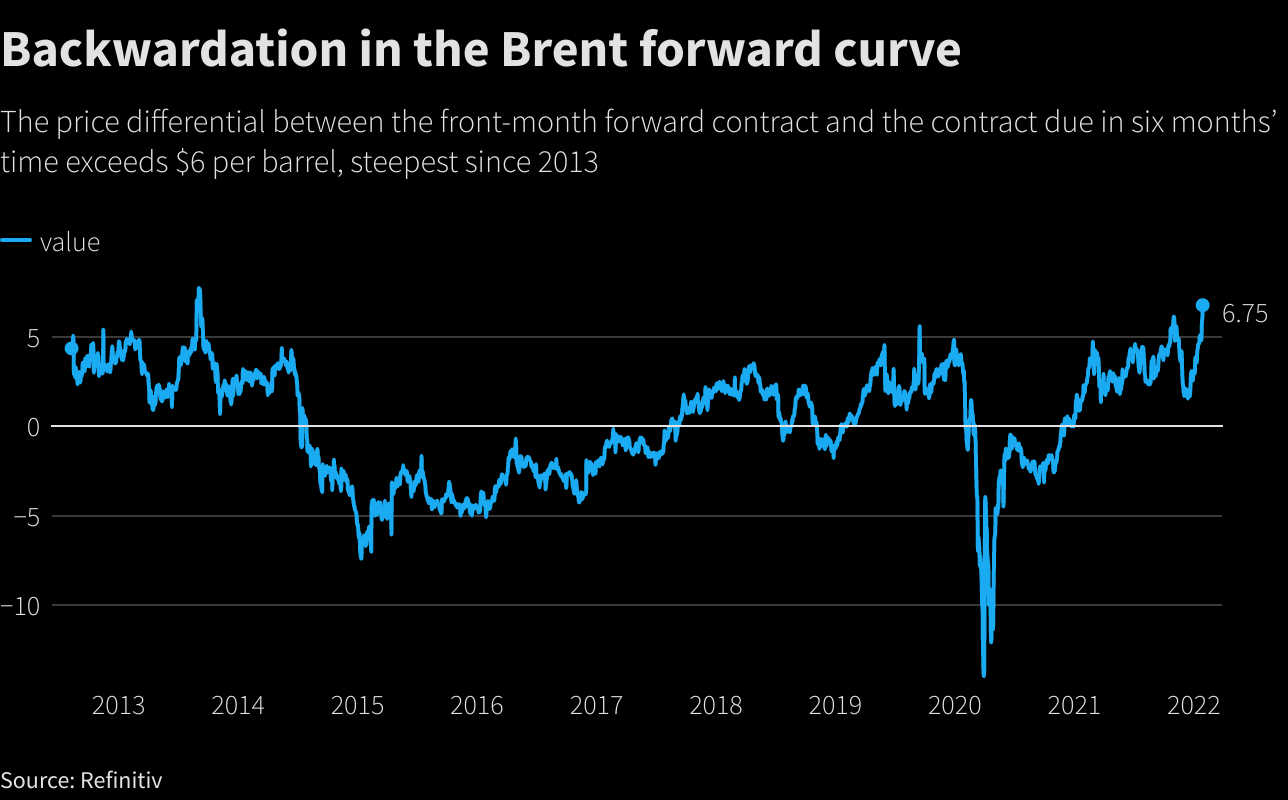Oil pump jacks are seen at the Vaca Muerta shale oil and gas deposit in the Patagonian province of Neuquen, Argentina, January 21, 2019. REUTERS/Agustin Marcarian/File Photo
Register now for FREE unlimited access to Reuters.com
Register
LONDON, Jan 31 (Reuters) – Oil prices were steady on Monday, with Eastern Europe and Middle East political issues offsetting expectations that major producers will release more supply to a thirsty market.
Brent crude was up 91 cents, or 1%, to $90.94 a barrel by 1500 GMT. The front-month contract for March delivery expires later in the day.
However the most-active Brent contract, for April delivery , was unchanged at $88.53. U.S. West Texas Intermediate crude rose 7 cents, or 0.1%, to $86.89 a barrel.
Register now for FREE unlimited access to Reuters.com
Register
The benchmarks on Friday recorded their highest levels since October 2014 at $91.70 and $88.84 respectively and their sixth straight weekly gain. They are on track for a monthly gain of about 17%, the most since last February.
Market analysts and Reuters sources widely expect OPEC+ to keep to its policy of gradual production increases when it meets on Wednesday. read more
“OPEC+ is likely to continue to agree on a monthly basis to increase production by 400,000 barrels per day (bpd),” bank UBS said. “We expect the group to prevent the oil market going into oversupply as some other market participants are predicting.”
Major producers in the Organization of the Petroleum Exporting Countries (OPEC) and allies led by Russia, collectively known as OPEC+, have raised their output by 400,000 bpd every month since August.
However, geopolitical tensions surrounding major oil producers Russia and the United Arab Emirates have increased recently.
The head of NATO said on Sunday that Europe needed to diversify its energy supplies as Britain warned it was “highly likely” that Russia was looking to invade Ukraine. read more ]
The market is also on alert over the Middle East situation after the United Arab Emirates said it had intercepted a ballistic missile fired by Yemen’s Houthi as the Gulf state hosted Israel’s President Isaac Herzog in a first such visit. read more
Register now for FREE unlimited access to Reuters.com
Register

Reporting by Bozorgmehr Sharafedin in London, additional reporting by by Yuka Obayashi and Mohi Narayan in Tokyo; Editing by Louise Heavens and David Goodman
Our Standards: The Thomson Reuters Trust Principles.
